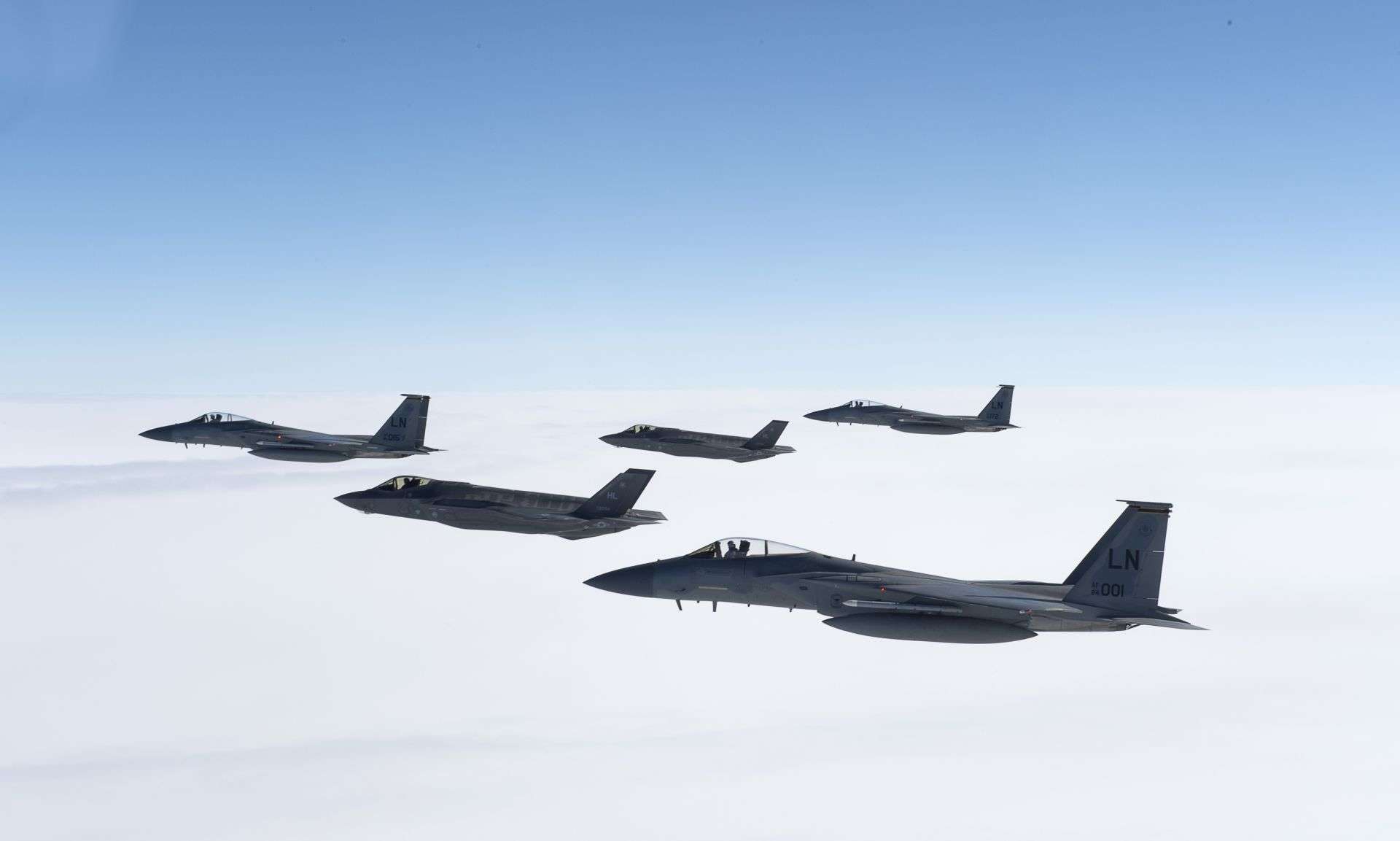Two U.S. F-35 Lightning II aircraft and about 20 supporting airmen arrived in Bulgaria today from Royal Air Force Lakenheath, England, as part of a deployment that enhances the region’s ability to host the aircraft for future deployments and operations.
“This deployment clearly demonstrates our nation’s contribution to the security and collective defense here in Europe,” said Army Gen. Curtis M. Scaparrotti, the commander of U.S. European Command and NATO’s supreme allied commander for Europe. “It shows we are serious about territorial integrity and will defend our interests with the most advanced capabilities our nation has to offer.”
These movements were planned in advance and in close coordination with the Bulgarian government, Eucom officials said. The deployment allows the F-35A pilots and supporting airmen the opportunity to engage in familiarization training within the European theater while reassuring allies and partners of U.S. dedication to the enduring peace and stability of the region, according to U.S. Air Forces in Europe officials.
The aircraft and airmen are from the Air Force’s 34th Fighter Squadron and the Air Force Reserve’s 466th Fighter Squadron. Both units are based at Hill Air Force Base, Utah.
The F-35A’s were joined by an Air Force KC-135 Stratotanker, which departed from Royal Air Force Mildenhall, England. The air refueler is an Air Force Reserve aircraft forward-deployed from the 459th Air Reserve Wing at Andrews Air Force Base, Maryland, and showcases the command’s ability to employ active and reserve airmen across the globe, Eucom officials said.
As the first European flying training deployment for the F-35A, these movements signify an important milestone and natural progression of the joint strike fighter program throughout Europe, the officials said.
This long-planned deployment continues to galvanize the U.S. commitment to security and stability throughout Europe, Eucom officials said. The aircraft and airmen began arriving in Europe April 15 and will remain for several weeks.
The F-35A forward deployments throughout Europe maximize opportunities for training while also strengthening the NATO alliance, the officials said. The introduction of the premier fifth-generation fighter to Europe brings state-of-the-art sensors, interoperability and a vast array of advanced air-to-air and air-to-surface munitions that will help maintain the fundamental territorial and air sovereignty rights of all nations, Eucom officials said. The fighter provides unprecedented precision-attack capability against current and emerging threats with unmatched lethality, survivability and interoperability, they said.










